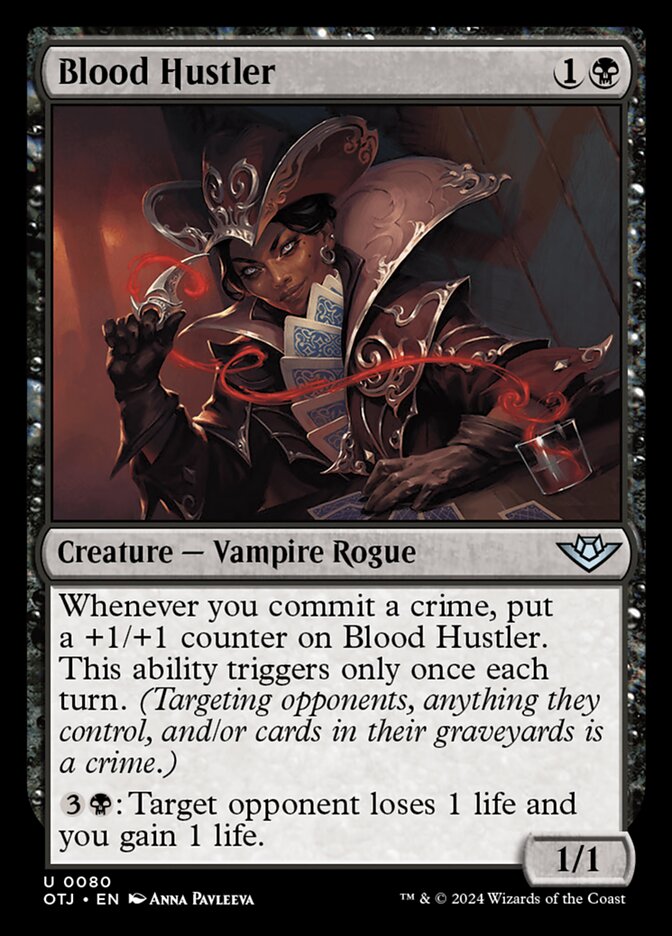
Blood Hustler {1}{B}
Creature — Vampire Rogue
Whenever you commit a crime, put a +1/+1 counter on Blood Hustler. This ability triggers only once each turn. (Targeting opponents, anything they control, and/or cards in their graveyards is a crime.)
{3}{B}: Target opponent loses 1 life and you gain 1 life.
1/1
Illustrated by Anna Pavleeva
- Standard
- Legal
- Alchemy
- Legal
- Pioneer
- Legal
- Explorer
- Legal
- Modern
- Legal
- Historic
- Legal
- Legacy
- Legal
- Brawl
- Legal
- Vintage
- Legal
- Timeless
- Legal
- Commander
- Legal
- Pauper
- Not Legal
- Oathbreaker
- Legal
- Penny
- Legal
Toolbox
Buy This Card
Notes and Rules Information for Blood Hustler:
- If the target opponent is an illegal target as Blood Hustler’s activated ability tries to resolve, it won’t resolve and none of its effects will happen. You won’t gain life. (2024-04-12)
- A player commits a crime as they cast a spell, activate an ability, or put a triggered ability on the stack that targets at least one opponent, at least one permanent, spell, or ability an opponent controls, and/or at least one card in an opponent’s graveyard. (2024-04-12)
- The spell or ability that constituted a crime doesn’t have to have resolved yet or at all. As soon as you’re finished casting the spell, activating the ability, or putting the triggered ability on the stack, you’ve committed a crime. (2024-04-12)
- For example, an ability that triggers when you cast a spell that targets an opponent will trigger at the same time as an ability that triggers whenever you commit a crime. Those abilities can be put on the stack in either order (if you control them both), and they’ll both resolve before the spell that caused them to trigger. (2024-04-12)
- A player can commit only one crime per spell or ability they control. Targeting multiple opponents, permanents, spells, abilities, and/or cards with the same spell or ability doesn’t constitute committing multiple crimes. (2024-04-12)
- Changing the target or targets of a spell or ability won’t affect whether or not the controller of that spell or ability has committed a crime. Only the initial targets chosen for that spell or ability are used to determine whether or not its controller committed a crime. (2024-04-12)